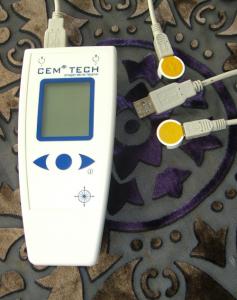Dealing with Domestic Violence
02-10-2013 / By:
Every day,
the police, telephone hotlines and shelters for abused women receive calls for
help from victims of abuse and aggression. Most victims in an abusive relationship
falsely believe that the situation will improve with time. Victims usually
react by keeping silent due to shame, fear of the aggressor and lack of
self-esteem and confidence. This situation continues often until tragic events
happen, such as a serious assault or even murder. When all else fails and
despair increases, only one solution remains: seeking alternatives, and
assistance how to escape the never-ending abuse.
Some
sensational cases of terrible assaults and murder of women by their spouses or
partners, which occurred in Israel in the last few years, have brought about
increased awareness of the problem. In the last four years, 104 cases of
murders of women by their partners or boyfriends have occurred. In the last
year alone (1994) there have been 19 such cases.
Domestic violence
and abuse does not discriminate and choose its victims. It can happen to anyone
of any race, age, sexual orientation, religion or gender. It can happen to
couples who are married, living together or who are dating. Domestic violence
affects people of all socioeconomic backgrounds and education levels. But
domestic violence can be prevented and stopped if you are willing to do
something about it.
You may be in an emotionally abusive relationship if your partner:
- Calls you names, insults you or continually criticizes you.
- Does not trust you and acts jealous or possessive.
- Tries to isolate you from family or friends.
- Monitors where you go, who you call and who you spend time with.
- Does not want you to work.
- Controls finances or refuses to share money.
- Punishes you by withholding affection.
- Expects you to ask permission.
- Threatens to hurt you, the children, your family or your pets.
- Humiliates you in any way.
- Uses sex to manipulate you
The following
are the various mechanisms and models used in Israel in an effort to reduce
violence against men, women, and children in the family.
Hotlines
Various non-governmental services and organizations make available hotlines for battered women, manned 24 hours by volunteers who have undergone special training, who deal knowledgeably and empathetically with the distressed women on the other side of the line.
Workshops and Lectures
Teams of social workers and lawyers, provide lectures and workshops in schools, for women soldiers, social workers, lawyers, judges, police, medical staff and others, in order to bring to the fore the subject of violence in the family, as well as the legal, behavioral and social aspects of the phenomenon.
Shelters
Shelters for battered women and their children exist around the country, including in the Arab sector, and provide protection for the victim from the violent partner. Professional staffs of social workers and volunteers, provide a therapeutic framework for those women who wish to break the vicious circle of violence. The shelter's address and telephone number are unknown to the general public but are available to all welfare services, police stations and hospitals, in order to allow these to refer the victims to these centers.
Independent Accommodations
Independent accommodation for single-parent families, have recently been made possible by the Ministry of Housing which pays for the rent for one year. The staff of the shelter, continue to follow the progress of the women and her children in the "Half-Way House" project.
Self-Help Groups
Self-help groups have been set-up, providing support for victims of domestic violence in order to work-through emotions and experiences. Former battered wives who have participated in these courses are now working as volunteers in these frameworks.
Legal Aid
Para-professional volunteers, lawyers and social workers provide legal advice to women regarding family disputes, advice regarding divorce proceedings, child maintenance and personal status laws and even accompany women to court, and provide support and encouragement to take active steps to change their lives.
Violence Prevention Courses
Violence Prevention Courses provide treatment for violent men, carried out by professional social workers, specializing in the treatment of violence. The battered women are also included in the treatment program. Such workshops have been initiated within the Israel Prison Service for violent inmates, as well.
Hospital Emergency Services
Emergency rooms in hospitals provide emergency services, while the medical professionals have been trained in making sure the police are notified, and that the evidence of abuse is documented properly for court






